Discover the top 25 Superfoods for sharp memory in children. Enhance brainpower naturally with these nutrient-rich options. Get expert insights and advice on nourishing your child’s cognitive development.
In this fast-paced digital age, ensuring your child has a sharp memory is paramount. Proper nutrition plays a pivotal role in cognitive development, and superfoods in your child’s diet can significantly boost their memory. Let’s explore 25 superfoods that can help enhance your child’s memory power.
As parents, we all want the best for our children, especially their cognitive development. Memory enhancement is a crucial aspect of their growth journey, and it starts with providing the proper nutrition. To function at its best, the brain needs a specific set of nutrients, and incorporating superfoods into your child’s diet can make a remarkable difference.
The Role of Nutrition in Memory Enhancement
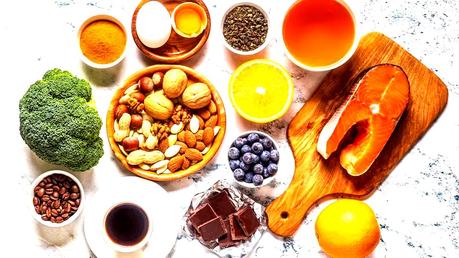
Proper nutrition is the foundation of a sharp memory. The brain depends on an ongoing supply of necessary nutrients to perform cognitive functions effectively. Superfoods are abundant in antioxidants, vitamins, minerals, and healthful fats that support brain health and memory retention.
1. Blueberries: Tiny Berries with Big Benefits
Strawberries and blackberries, like blueberries, are rich in flavonoids and antioxidants that protect brain cells from oxidative stress, ultimately enhancing memory.
Blueberries are packed with antioxidants called flavonoids, which have been related to better cognitive and memory performance. These tiny berries also contain vitamins C and K, as well as fiber, contributing to a healthy brain.
Read more: How to Get Skin Benefits from Blueberries: A Comprehensive Guide
2. Fatty Fish: Omega-3 Powerhouse
Omega-3 fatty acids are widely available in fatty fish, including salmon, trout, and sardines. These fats are essential for the growth of the brain and function, promoting better memory and focus in children.
3. Eggs: Lutein and Zeaxanthin for Visual Memory
Eggs contain a lot of choline, a vitamin that supports memory development. They also provide high-quality protein, which is necessary for the development and regeneration of brain cells.
Eggs are known for their protein content, but they also contain lutein and zeaxanthin—two carotenoid antioxidants with unique benefits. These antioxidants are particularly concentrated in the retina of the eye, where they help protect against damage from harmful light.
Lutein and zeaxanthin not only support visual health but also play a role in cognitive processes related to visual memory. Visual memory is crucial for tasks like recognizing faces, recalling shapes, and remembering visual details. By including eggs in your child’s diet, you’re providing nutrients that can enhance both their visual and cognitive abilities.
4. Spinach: Nutrient-rich Brain Booster
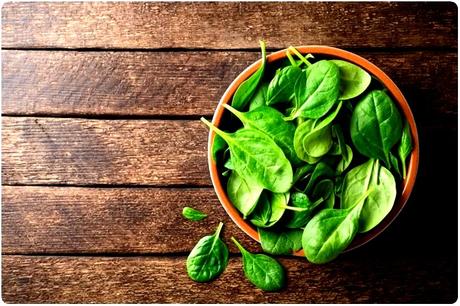
Iron, folate, and vitamins E and K are all abundant in spinach. These nutrients help maintain proper brain function and support memory consolidation.
Read more: The Health Advantages of Spinach
5. Greek Yogurt: Probiotic Delight for Cognitive Health
Greek yogurt contains probiotics that promote a healthy gut-brain connection. A balanced gut microbiome is crucial for cognitive development and emotional well-being.
6. Broccoli: Vitamin-rich Brain Fuel
Vitamin K and antioxidants are abundant in broccoli, which are known to support brain health. Additionally, it has elements that assist lower inflammation, benefiting overall cognitive function.
7. Walnuts: Crunchy Brain-shaped Nutrients
Walnuts are shaped like little brains for a reason. They are an excellent source of DHA, an omega-3 fatty acid that supports brain growth and cognitive function.
8. Dark Chocolate: A Sweet Memory Stimulant
Flavonoids found in dark chocolate improve brain blood flow, improving memory and cognitive performance. However, moderation is key due to its calorie content.
9. Avocado: Healthy Fats for a Healthy Mind
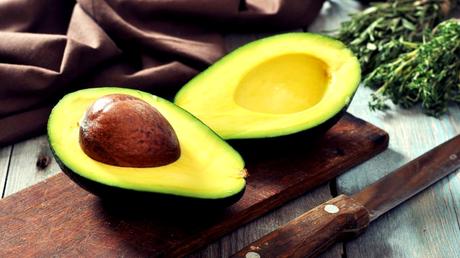
Avocados are a great source of blood-supporting monounsaturated fats., keeping the brain well-nourished. They also contain vitamins and minerals that aid cognitive function.
10. Whole Grains: Fuel for Concentration
Glucose is continuously supplied by whole grains, the brain’s primary energy source. They help maintain focus and concentration throughout the day.
11. Pumpkin Seeds: Zinc-packed Brain Support
Zinc is abundant in pumpkin seeds, an important mineral for nerve signaling and memory formation. They also contain magnesium, iron, and copper, which contribute to brain health.
12. Oranges: Vitamin C for Mental Agility
Vitamin C is abundant in oranges, an antioxidant that supports brain health by protecting cells from damage. Neurotransmitter synthesis is aided by vitamin C.
Read more: 20 Top Power-Packed Foods for Players
13. Turmeric: Spice Up Your Child’s Memory

The primary component of turmeric, curcumin, has both anti-inflammatory and antioxidant properties, which benefit brain health. It may also help in the growth of new brain cells.
14. Green Tea: Antioxidant-rich Brain Elixir
Green tea contains caffeine and L-theanine, compounds that promote alertness and focus. It also boasts antioxidants that protect brain cells from oxidative stress.
Read more: Tokyo: The Ultimate Travel Guide
15. Cinnamon: Spice Up Cognitive Performance
Improvements in memory and mental function have been attributed to cinnamon. Adding a sprinkle of cinnamon to oatmeal or yogurt can provide a tasty cognitive boost.
Cinnamon isn’t just a delightful spice; emerging research suggests it may have cognitive-enhancing properties. One of the key components of cinnamon, cinnamaldehyde, has been studied for its potential to improve brain function.
Cinnamon’s potential cognitive benefits are attributed to its anti-inflammatory and antioxidant properties. Inflammation and oxidative stress are known to impact cognitive health, so incorporating cinnamon into your child’s diet could provide an extra layer of brain protection.
Whether added to breakfast foods, beverages, or snacks, cinnamon can be a flavorful way to spice up cognitive performance.
16. Oats: Complex Carbohydrates for Brain Fuel
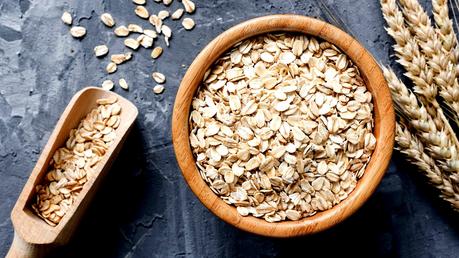
Oats are highly riched in complex carbohydrates that release energy gradually, supporting sustained focus and concentration. They also contain vitamin E, a potent antioxidant for brain health.
Oats are a staple breakfast option known for their complex carbohydrates. These carbohydrates provide a steady and sustained release of glucose, the brain’s primary energy source. Maintaining stable glucose levels is essential for supporting cognitive tasks that require focus and attention.
Including these additional superfoods in your child’s diet can further enhance their cognitive abilities and contribute to their overall well-being. Remember that a balanced and diverse diet is key to supporting optimal brain function.
In addition to their carbohydrate content, oats contain vitamin E—a powerful antioxidant that helps protect brain cells from the stress of oxidative. The stress of oxidative can lead to cell damage and contribute to cognitive decline, making vitamin E an important nutrient for overall brain health.
By incorporating oats into your child’s diet, you’re providing them with a reliable source of brain fuel and antioxidant protection.
17. Chia Seeds: Omega-3 Boosters for Brain Health
Chia seeds might be small, but they are incredibly nutrient-dense. Their standout feature is their omega-3 fatty acid content, particularly alpha-linolenic acid (ALA). Omega-3s are considered essential for brain development and function, as they help build and maintain cell membranes in the brain.
Omega-3 (three) fatty acids are known for their role in promoting communication between brain cells, enhancing neural pathways, and supporting cognitive processes such as memory and learning. By incorporating chia seeds into your child’s diet, you’re providing their brain with the building blocks it needs for optimal performance.
What’s more, chia seeds are an excellent source of dietary fiber. This fiber aids in maintaining stable blood sugar levels, preventing energy crashes that can affect concentration and focus. The combination of omega-3s and fiber makes chia seeds a fantastic superfood for sustained cognitive energy.
Read more: How to Get Healthy Benefits from Chia Seeds
18. Sweet Potatoes: Beta-Carotene for Cognitive Function
The vibrant orange hue of sweet potatoes indicates their high beta-carotene content. Beta-carotene is a precursor to vitamin A, a crucial nutrient for brain health. Vitamin A supports various cognitive functions, including memory consolidation, information processing, and problem-solving.
Moreover, vitamin A plays a role in maintaining the health of neural pathways, ensuring efficient communication between brain cells. By including sweet potatoes in your child’s diet, you’re providing them with a nutrient that supports cognitive function and memory retention.
19. Salmon: Omega-3 Power for Brain Function
Especially high in omega-3 fatty acids is salmon., particularly DHA (docosahexaenoic acid), which is crucial for brain health. DHA supports brain cell communication, improves memory, and enhances cognitive function. Include grilled or baked salmon in meals to provide a healthy dose of omega-3s.
20. Black Beans: Protein and Fiber Combo
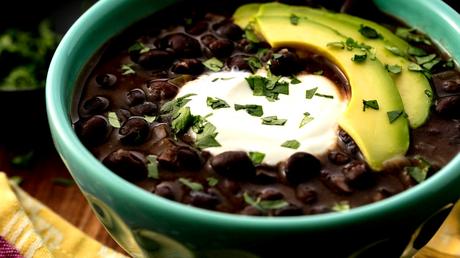
Black beans are highly riched in protein and fiber, providing a steady release of energy that supports sustained focus. Protein contributes to the production of neurotransmitters, aiding memory and cognitive processes. Add black beans to salads, wraps, or soups for a nutrient-packed meal.
21. Bell Peppers: Vitamin C Boost
Bell peppers are higher in vitamin C, an antioxidant that protects brain cells from oxidative stress. Additionally, vitamin C helps the synthesis of neurotransmitters, which are essential for optimal cognitive function. Enjoy bell peppers raw in salads or as crunchy snacks.
22. Cauliflower: Brain-Boosting Nutrients
Cauliflower contains choline, a nutrient that supports memory and cognitive function. Acetylcholine, a neurotransmitter important in learning, is derived from choline and memory. Roast or steam cauliflower for a delicious and nutritious side dish.
23. Mango: Antioxidant-Rich Sweetness
Mangoes are not only delicious but also packed with antioxidants like vitamin C and beta-carotene. These antioxidants protect brain cells from damage and support overall cognitive health. Enjoy fresh mango slices as a sweet and brain-boosting snack.
24. Sardines: Nutrient-Dense Brain Food
Sardines are a nutrient-dense fish that provides omega-3s, vitamin D, and B vitamins. The health and function of the brain depend on vitamin D, while B vitamins help with neurotransmitter production. Consider adding canned sardines to salads or sandwiches.
25. Pomegranate: Cognitive-Enhancing Compounds
Pomegranate is rich in polyphenols, which have antioxidant and anti-inflammatory properties that benefit brain health. These compounds may improve memory and cognitive function by protecting brain cells. Enjoy pomegranate seeds as a topping for yogurt or oatmeal.
Incorporating these additional superfoods into the diet plan can further support children’s memory and cognitive function. A balanced diet composed of a variety of foods high in nutrients will provide the building blocks necessary for optimal brain health. Remember to maintain a balanced and diverse diet and consult with a healthcare professional before making significant dietary changes.
Read more: How to Get Health Benefits from Pomegranates
Superfoods Diet Plan for Sharp Memory in Children
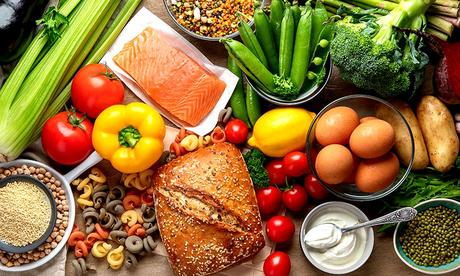
Breakfast:
Option 1: Chia Seed Parfait
- Mix chia seeds with Greek yogurt and a splash of almond milk.
- Add a handful of blueberries and chopped strawberries.
- Top with a sprinkle of cinnamon and a drizzle of honey.
Option 2: Oatmeal Power Bowl
- Prepare a bowl of oats with water or milk.
- Add sliced bananas, chopped walnuts, and a tablespoon of ground flaxseeds.
- Sprinkle with a dash of cinnamon for added flavor.
Mid-Morning Snack:
Option 1: Boiled Eggs with Carrot Sticks
- Enjoy a hard-boiled egg with a side of carrot sticks.
- This snack provides protein from the egg and beta-carotene from the carrots.
Option 2: Mixed Berries
- Grab a handful of mixed berries such as blueberries, raspberries, and blackberries.
- These antioxidant-rich fruits are perfect for a quick and refreshing snack.
Lunch:
Option 1: Salmon and Sweet Potato Salad
- Grill or bake salmon fillet and serve it over a bed of spinach.
- Add roasted sweet potato cubes for extra flavor and beta-carotene.
- Drizzle with olive oil along with a squeeze of lemon.
Option 2: Whole Grain Wrap
- Fill a whole-grain wrap with sliced avocado, mixed greens, and diced hard-boiled eggs.
- Top with a sprinkle of pumpkin seeds for a crunch and zinc boost.
Afternoon Snack:
Option 1: Greek Yogurt Parfait
- Layer Greek yogurt with chia seeds chopped nuts, and a handful of berries.
- This snack provides probiotics, omega-3s, and antioxidants.
Option 2: Sliced Apple with Nut Butter
- Dip apple slices into almond or peanut butter for a satisfying and nutritious snack.
Dinner:
Option 1: Quinoa-Stuffed Bell Peppers
- Prepare quinoa and mix it with sautéed vegetables and diced tomatoes.
- Bake the mixture after stuffing it into bell peppers until tender.
Option 2: Turmeric-Spiced Chicken
- Marinate chicken with turmeric, garlic, and olive oil.
- Grill or bake the chicken and serve it with a side of steamed broccoli.
Evening Snack:
Option 1: Dark Chocolate-Dipped Berries
- Melt dark chocolate and dip berries like strawberries or blueberries.
- Dark chocolate provides antioxidants, and berries add vitamins and fiber.
Option 2: Cinnamon-Sprinkled Greek Yogurt
- Mix a pinch of cinnamon into Greek yogurt for a tasty and brain-boosting dessert.
Remember, variety is key. You are welcome to combine and contrast these alternatives child’s preferences and dietary needs. This diet plan focuses on incorporating a range of superfoods that are highly riched in essential nutrients for brain health. Additionally, Before making any big dietary changes for your child, always speak with a medical practitioner or certified dietician.
FAQs: 25 Superfoods for Sharp Memory
Q1: Can these superfoods replace the need for a balanced diet?
These superfoods are beneficial for memory enhancement, but they should be part of a well-rounded diet that includes a variety of nutrients.
Q2: How can I incorporate these superfoods into my child’s meals?
You can add blueberries to yogurt, include fatty fish in sandwiches, blend spinach into smoothies, and sprinkle nuts and seeds on oatmeal.
Q3: Are there any side effects associated with consuming these superfoods?
Generally, these superfoods are safe for consumption. However, it’s advisable to monitor any potential allergies or sensitivities.
Q4: Are there any age restrictions for including these superfoods in a child’s diet?
Most of these superfoods can be introduced when a child starts consuming solid foods. Always consult with a pediatrician before making significant dietary changes.
Q5: How long does it take to see noticeable improvements in memory after incorporating these superfoods?
Results may vary, but with consistent consumption over a few weeks, you may start noticing positive changes in your child’s memory and cognitive abilities.
Conclusion
Incorporating these 25 superfoods into your child’s diet can significantly enhance their cognitive development and memory. Remember that a healthy diet, exercise, and mental stimulation are all crucial for overall brain health. You can help your child reach their full cognitive potential by prioritizing these elements.
